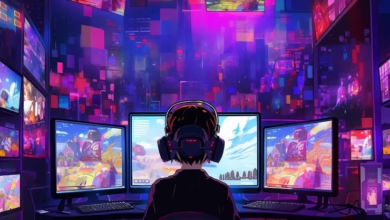
In today’s fast-paced financial world, knowing how to make the most of your money is essential for long-term wealth growth. With countless options available, making informed and strategic decisions can be the difference between financial success and missed opportunities. One platform that is steadily gaining attention for helping individuals navigate the complex world of investments is investiit.com tips.
Whether you’re a beginner or a seasoned investor, investiit.com tips provides tools, resources, and expert advice to guide you through the intricacies of smart investing. This comprehensive guide will explore valuable tips on how to make the most of Investiit.com, offering practical insights into everything from understanding the platform to making informed investment choices.
What is Investiit.com?
Investiit.com is a cutting-edge investment platform that connects investors with a wide array of opportunities, such as stocks, bonds, ETFs, real estate, and cryptocurrency investments. The platform is designed to make investing more accessible, transparent, and efficient, offering users the tools they need to make smarter financial decisions.
At its core, investiit.com tips aims to simplify investing by offering:
- Comprehensive educational resources for novice investors
- Advanced tools for experienced traders
- A user-friendly interface that makes it easy to track investments and view portfolio performance
In this article, we will share expert tips on using investiit.com tips effectively to improve your investment strategies and increase your chances of success.
Tip 1: Understand Your Investment Goals
Before diving into any investment, it’s crucial to understand your personal goals. Are you looking to build long-term wealth, generate passive income, or grow your portfolio quickly for short-term gains? Your goals will guide the strategies you implement on investiit.com tips.
Define Your Risk Tolerance
Risk tolerance refers to the amount of risk you are willing to take on when investing. Are you comfortable with high-risk, high-reward opportunities like tech stocks or cryptocurrencies? Or do you prefer more stable, low-risk investments like bonds or dividend-paying stocks? investiit.com tips offers various investment options tailored to different risk profiles, allowing you to choose based on your preferences.
Set a Time Horizon
Your investment timeline is also an essential factor. Short-term traders may focus on volatility, while long-term investors may look for opportunities with steady growth over time. investiit.com tips helps you categorize investment opportunities to align with your time horizon, whether you’re aiming for long-term security or short-term returns.
Tip 2: Leverage the Educational Resources
One of the standout features of investiit.com tips is its vast library of educational content. For both beginners and more advanced investors, the platform provides an array of courses, tutorials, articles, and videos that cover everything from the basics of investing to advanced trading strategies.
Start with the Basics
If you’re new to investing, take the time to go through the introductory resources. investiit.com tips offers easy-to-follow guides on:
- Stock market basics
- Types of investments (stocks, bonds, ETFs, etc.)
- The importance of diversification
- How to evaluate an investment
Having a solid understanding of the fundamentals will lay the groundwork for making informed decisions as you move forward.
Stay Updated with Market Trends
Even seasoned investors need to stay updated on market trends. Investiit.com provides regular updates on the latest economic news, stock market fluctuations, and trends in real estate, commodities, and other investment vehicles. By staying informed, you can adapt your strategies to take advantage of emerging opportunities.
Tip 3: Diversify Your Portfolio
The age-old adage, “Don’t put all your eggs in one basket,” rings especially true in the world of investing. Diversification is one of the most powerful strategies to reduce risk and optimize returns.
Use investiit.com tips to Diversify
investiit.com tips allows you to invest across various asset classes, making it easy to diversify your portfolio. Whether you’re interested in:
- Stocks: Equities offer ownership in companies and can appreciate over time.
- Bonds: Bonds are relatively safer investments that offer steady income.
- ETFs (Exchange-Traded Funds): ETFs allow you to invest in a variety of assets with one purchase, providing built-in diversification.
- Real Estate: Real estate investment offers the potential for long-term gains through property appreciation.
- Cryptocurrency: For high-risk, high-reward investors, cryptocurrencies like Bitcoin and Ethereum offer substantial upside potential.
By diversifying, you mitigate the risk of a downturn in any one market affecting your entire portfolio. Using Investiit.com, you can access a wide range of assets, making it easier to maintain a diversified investment strategy.
Tip 4: Take Advantage of the Smart Investing Tools
One of the reasons why investiit.com tips is so popular is because of its powerful suite of tools designed to make investing easier and more effective. Here are a few tools you should take full advantage of:
Portfolio Tracking
Keep track of all your investments in one place. investiit.com tips allows you to create a personalized portfolio where you can monitor performance, track returns, and analyze trends. This feature ensures that you stay on top of your investments and can make adjustments when necessary.
Investment Calculators
For those who want to project their future earnings, investiit.com tips provides investment calculators that can help you estimate returns based on your current investments, time horizon, and risk tolerance.
Risk Management Tools
Managing risk is critical in investing. The investiit.com tips platform provides tools that help you assess potential risks associated with different investment opportunities. Use these tools to calculate your risk exposure and determine if the risk is worth the potential reward.
Tip 5: Learn How to Evaluate Stocks
If stocks are a significant part of your investment strategy, learning how to evaluate them is essential. investiit.com tips provides tools and resources to help you analyze potential stock investments. Here are some factors to consider when evaluating a stock:
Financial Statements
Examine a company’s income statement, balance sheet, and cash flow statement. Look for companies with healthy earnings, manageable debt, and strong cash flow. investiit.com tips offers easy-to-read charts and financial data that allow you to evaluate these key metrics.
Market Position and Growth Potential
Consider the company’s industry, competitive advantage, and growth potential. Are they positioned well for future growth? Does the company have a sustainable competitive edge?
Valuation Metrics
Using price-to-earnings (P/E) ratios, price-to-book (P/B) ratios, and other valuation metrics, you can determine if a stock is overvalued or undervalued. This will help you make smarter buy or sell decisions.
Tip 6: Start Small and Scale Gradually
Investing on investiit.com tips doesn’t require huge amounts of capital to get started. One of the best pieces of advice for beginners is to start small and gradually scale up as you gain more experience and confidence in your investment strategies.
Fractional Shares
investiit.com tips allows you to buy fractional shares, meaning you don’t need to invest large sums of money to start building a portfolio. This feature is particularly useful for newer investors who may not have large amounts of capital to invest.
Dollar-Cost Averaging (DCA)
Dollar-cost averaging is a strategy where you invest a fixed amount of money at regular intervals, regardless of market conditions. This strategy helps you avoid trying to time the market and reduces the impact of volatility. investiit.com tips provides automated tools to help you implement this strategy with ease.
Tip 7: Stay Disciplined and Patient
The road to success in investing is not a sprint—it’s a marathon. Patience and discipline are essential to achieving long-term financial goals. Avoid making knee-jerk reactions to short-term market fluctuations, and don’t be swayed by fear or greed. Stick to your strategy, and remember that consistency is key.

Conclusion: Make the Most of investiit.com tips
Whether you’re looking to invest in stocks, bonds, cryptocurrency, or real estate, investiit.com tips offers everything you need to succeed. By following the tips outlined in this guide—setting clear goals, educating yourself, diversifying your portfolio, using advanced tools, and staying disciplined—you can make the most of the platform and pave the way for financial growth.
Investing is a journey, and with investiit.com tips by your side, you have all the resources to navigate it successfully. So, take that first step, start investing, and watch your money grow!


